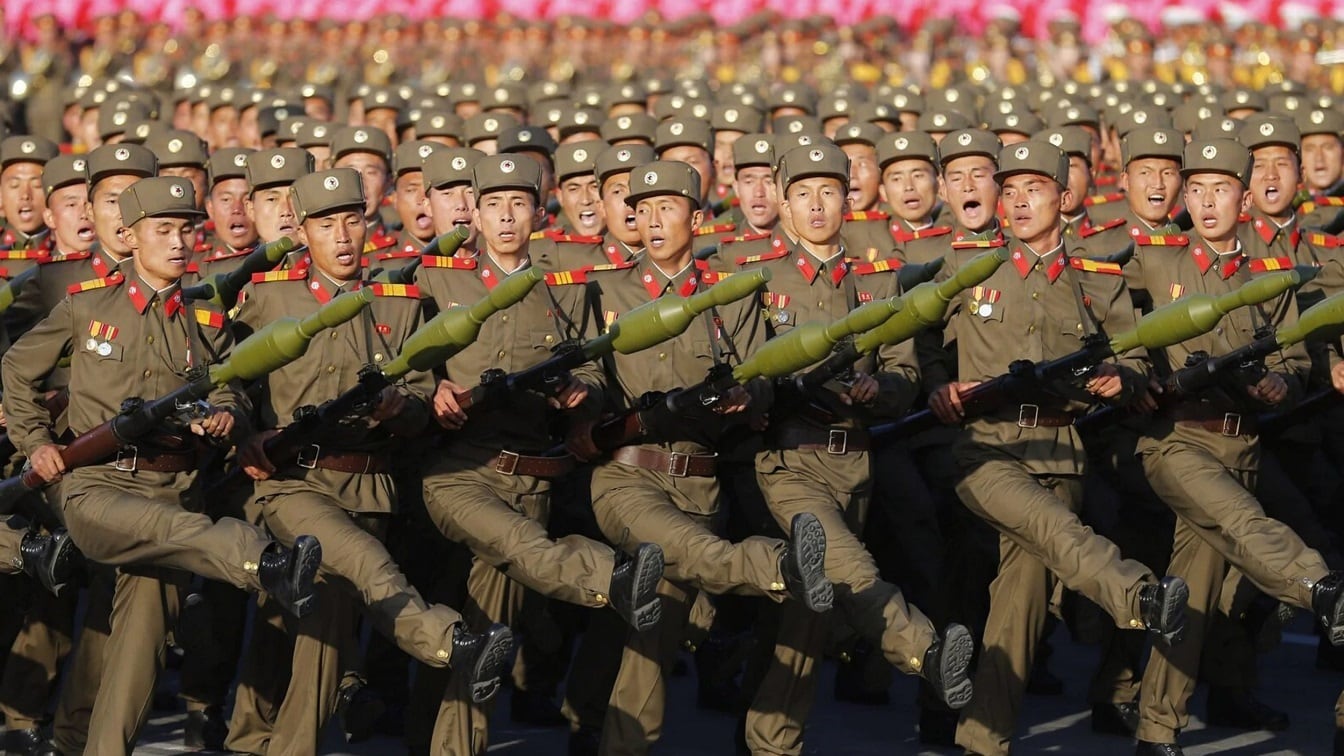American President Joseph Biden swung through South Korea this week. There was much anxiety that North Korea might launch a long-range missile or test another nuclear weapon during his visit. Thankfully, it did not – until Biden left Asia, that is. It might have elicited an aggressive statement from Biden, as he gave regarding Taiwan. But this might also account for the mixed media response to the trip. The U.S. media seemed excited to see North Korean hijinks, but they never arrived. So the trip became a fairly conventional U.S. presidential trip abroad.
But if Biden’s Taiwan remarks overshadowed this trip, we have missed an important hawkish turn on North Korea. South Korea’s new president, Yoon Seok-Yeol, is a conservative and seeks a tougher line on Pyongyang than his predecessor, leftist Moon Jae In. Similarly, Biden is hawkish on North Korea, far more than his predecessor, Donald Trump, who notoriously claimed to “fall in love” with North Korean leader Kim Jong Un.
The US and South Korea are now on the same hawkish page regarding North Korea for the first time since 2016. We should expect, among other things, more unified support for sanctions on North Korea over its nuclear weapons program, less willingness to talk for talk’s sake with Pyongyang, and more emphasis on North Korean denuclearization.
Time of Appeasing North Korea Is Over
In an interview with CNN, Yoon said the “time of appeasing North Korea is over,” which the South Korean conservative press has greeted with relief. Moon made an enormous effort to solicit North Korea. He complimented Kim publicly, spoke of him as a dynamic leader, and talked up his ostensible support for a Korean ‘peace regime.’
Unfortunately for Moon, Kim never really offered him much. Kim sought to disjoin South Korea from the U.S. to negotiate directly with Moon without the Americans. Moon ultimately demurred. He did not have enough popular backing in South Korea to openly break with the Americans to pursue détente alone with the North. The North responded harshly and stopped dealing with Moon.
The North then engaged the Americans directly. Trump had three summits with Kim. But there too, Kim offered little. At their Hanoi summit in 2019, Kim offered a deal to Trump which was so balance-negative for the US – one nuclear power plant for all sanctions removed – that Trump, despite his desire for a Nobel Peace Prize, was forced to turn it down.
So by the end of Moon’s term this spring, he had little to show for five years of engaging Kim. South Korean conservatives saw this fruitless engagement as appeasement: South Korea offering to treat North Korea – an Orwellian slave state of tyranny – as a normal state, thereby jeopardizing the relationship with the Americans who were more hawkish on North Korea than Moon.
Yoon pretty clearly means to end all that. He has spoken of restoring the U.S. alliance, with the implication that Moon damaged it. And given that the core focus of the alliance is North Korea, that means a hawkish turn on dealing with it.
The Status Quo is Back, Again
The moral appeal of Biden and Yoon’s return to the pre-Trump/Moon status quo is clear. North Korea is governed by arguably the worst people in the world. If anyone in the world deserves to be sanctioned, it is the Pyongyang elite. A more hawkish South Korean posture also helps the alliance. Trump never won over the U.S. foreign policy community with his dovishness on the North. Where Moon had some domestic support for his outreach to the North, Trump had almost none, and much of Washington official was relieved when Trump finally abandoned Korean diplomacy in late 2019. So Yoon is restoring the relationship with America by bringing South Korean policy closer to its traditional alliance norm.
The problem with this, however, is that it offers little more than the indefinite status quo – stalemate, containment, division, deterrence. Yoon is correct that Moon bent over too far for the North. By the end of his term, Moon was so desperate for any kind of Korean deal for his presidential legacy, that his efforts did seem like appeasement. But to his credit, Moon tried something new to break the deadlock. With Biden and Yoon, the old impasse is back, and despite their desire for denuclearization, that is highly unlikely. Once again, we are back to bad choices with North Korea.
Dr. Robert E. Kelly (@Robert_E_Kelly; website) is a professor of international relations in the Department of Political Science at Pusan National University. Dr. Kelly is now a 1945 Contributing Editor as well.

